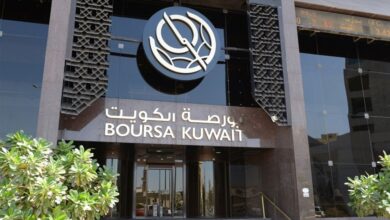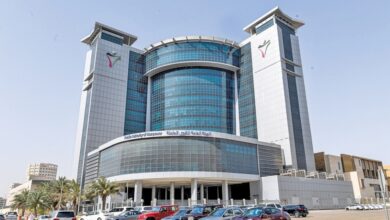Empowering Youth Today, for Tomorrow’s Kuwait

By Reaven D’Souza
Executive Managing Editor
An engaged and dynamic youth population is critical for national development, serving as a catalyst for economic growth and social progress. An energetic, trained young workforce also represents a demographic dividend with the potential to boost economic output, innovation and productivity in a country. They are also more open to embracing digital technology, entrepreneurship, and willing to take calculated risks. Empowering today’s youth is pivotal to a nation’s future.
It is reassuring that Kuwait is prioritizing the empowerment of its youth and boosting their participation in the workforce by focusing on providing quality education, training, entrepreneurial skills, and civic engagement. Youth-centric initiatives underway include reforms to the education system, to better align its outcomes with the needs of the labor market, and reorienting vocational training programs to equip young people with practical skills needed for future jobs.
Artificial Intelligence (AI) is already transforming how we will live, learn, and work, and increasingly reshaping economies through the ongoing Fourth Industrial Revolution. Given this scenario it has become imperative for Technical and Vocational Education and Training (TVET) institutes in the country to evolve and retool to provide youth with future-ready skills in AI and other digital sectors.
The government’s focus on empowering youth through various schemes including education reforms and TVET is reflected in the 2023 Global Knowledge Index (GKI) prepared by the United Nations Development Programme’s Regional Bureau for Arab States (UNDP RBAS) and the Dubai-based Mohammed bin Rashid Al Maktoum Knowledge Foundation (MBRF). The 2023 GKI positions Kuwait overall 44th out of 133 countries, and 43rd out of 61 countries with very high human development.
The GKI, which encompasses seven sub-indices covering primary and higher education, TVET, Information and Communication Technology (ICT), enabling environment, economy, and research, development and innovation, offers a valuable perspective on the diverse aspects of knowledge and development. The GKI serves as a vital tool for policy-makers to form informed development policies.
Kuwait’s relatively strong showing in the GKI, mirrors the country’s increasing focus on knowledge infrastructure and equipping national youth cadres with the skill and knowledge in alignment with trends in knowledge-based societies globally. In this regard several policies, plans, and programs have been, and are being, launched by the authorities to empower national youth.
Schemes have been launched to encourage and support entrepreneurship among youth so as to foster innovation and economic diversification. Additionally, efforts are continuing to create new job opportunities for youth, primarily in the private sector, as well as enhance their presence in small, and medium enterprises. Youth are also being encouraged to engage in community initiatives and leadership programs that foster a sense of ownership, responsibility, and civic pride.
In particular, the government has prioritized initiatives that prepare and equip young people with the skills and opportunities needed to participate in the Fourth Industrial Revolution—the ongoing transformation of industry and society through the convergence of technologies that seamlessly integrate the physical, digital, and biological spheres. Youth are also being encouraged. to engage effectively in the knowledge-based economy, and to contribute to Kuwait’s sustainable development.
A knowledge-based economy is one that focuses on developing individuals who can create new industries, foster innovation, and adapt to changing global markets. Kuwait’s Third National Development Plan, along with Kuwait Vision 2035, align with the global trend of knowledge-driven economies, by focusing on innovation, youth empowerment, and fostering a dynamic private sector.
In this regard, a series of workshops with experts, and discussions with policy- and decision-makers, was held under the ‘Knowledge Journey Kuwait’ banner. The initiative, which launched in October 2024 and culminated on 2 July this year, was a collaboration between the General Secretariat of the Supreme Council for Planning and Development (GSSCPD) , the UNDP and the MBRF.
The overarching aim of the workshops and discussions was to empower young citizens with leadership and future-oriented skills to drive digital transformation, foster innovation, exchange expertise, and build essential skills among them to participate effectively in the knowledge-based economy and contribute to long-term sustainable national development.
In her comments on the initiative in Kuwait, the Resident Representative of UNDP in Kuwait, Emma Morley noted that in today’s world a nation’s growth is mainly driven by their investment in knowledge, innovation, and human capital. “Our partnership with MBRF and the Kuwaiti SCPD contributes towards equipping youth and women to navigate global trends, inform evidence-based policymaking, actively shape the nation’s future, and help position youth as key players in creating a diversified, inclusive knowledge economy,” she said.
Transitioning to a knowledge-driven economy is vital to reduce the country’s overreliance on hydrocarbon revenues, to diversify the economy by opening opportunities in new sectors, and to increase the private sector’s participation in, and contribution to, the national economy. Transforming the economy gains further significance given the slow, steady global shift away from hydrocarbons towards renewable forms of energy, and to help reduce Kuwait’s carbon footprint.
Shifting to a knowledge-based economy is also crucial considering that Kuwait is gradually transitioning to an era where declining working age population and rising old-age dependency ratio marks a post-demographic-dividend period. Kuwait’s demographic dividend period is considered to have begun in 1990 and is expected to draw to a close by 2045, The country is currently in the ‘late-dividend’ period that began in 2016.
In preparation for the demographic transformation underway, the government needs to urgently prioritize empowering youth through initiatives targeting labor force participation and employment generation. Labor force data projections by UNDP show that by 2030, Kuwait will face a 53 percent increase in the youth labor force (those aged 15-24) compared to 2015, adding 80,000 new entrants into the labor market. The figures also reveal that by 2030 an additional 13,000 youth (aged 15-24), may be unemployed.
The rise in young job aspirants underlines the importance of implementing adequate measures to take advantage of the youth influx. The UNDP suggests that policy priorities for the government as it focuses on youth empowerment should include foremost, ensuring a steady stream of qualified workforce through reforming the education system and aligning them with labor market requirements, as well as realigning TVET programs to help youth develop the skills needed for employment and entrepreneurship.
Certified TVET courses can improve responsiveness to changing skill-demands by companies, increase productivity, and raise wage levels, as well as reduce access barriers to work through work-based learning. In addition TVET can offer skills development opportunities for low-skilled people, who are under- or unemployed, and to the out of school youth who are currently not in education, employment and training (NEETs).
Secondly, with an already bloated public sector struggling to cope with the demand for jobs by young nationals entering the labor market each year, and a private sector often reluctant to hire them, the government should prioritize creating and supporting entrepreneurship opportunities..Additionally, in order to realize the full share of Kuwait’s human capital and its potential for economic growth, the authorities should implement initiatives that unlock the potential of women and girls, enabling them to contribute effectively to the labor force and productivity.
Over a week back, the world marked the 10th anniversary since the UN began observing World Youth Skills Day (WYSD) on 15 July. The theme for this year’s celebration focuses on empowering youth through AI and digital skills. The power of young people to drive social, political, and economic change, makes it pivotal for Kuwait to equip its youth with the training and digital skills to tackle today’s challenges, participate effectively in a knowledge-based economy, and help shape a more peaceful, inclusive, and sustainable future.












